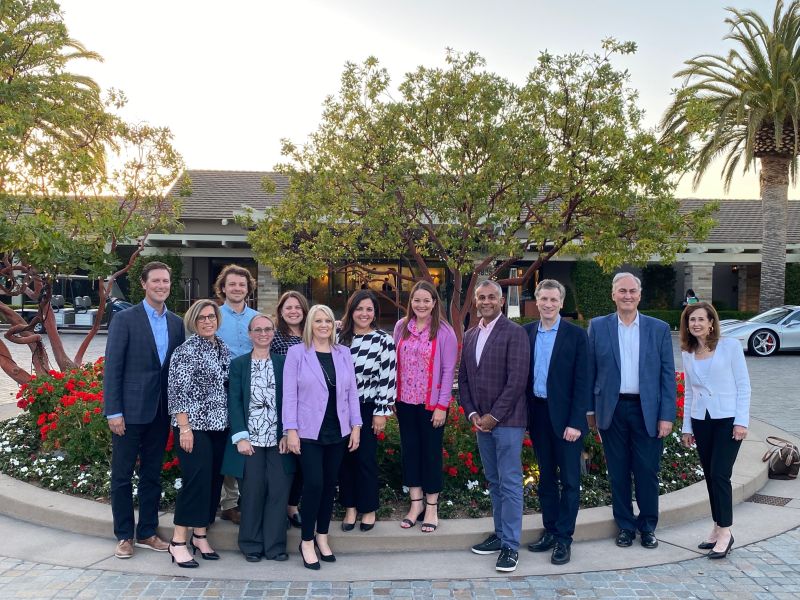Houston’s Unique Convergence of Industries Takes Center Stage in Delegation Trip to the West Coast
Published May 09, 2023 by Taylor Tatum
The West Coast has long been recognized for its life sciences and tech ecosystems, but when those companies look to scale or expand operations, Houston is a top destination. This symbiotic relationship was a defining characteristic of the Partnership’s recent delegation trip to the West Coast, led by its Regional Economic Development team.
The delegation focused on building key corporate relationships with top companies in San Diego, Los Angeles, and Silicon Valley to explore future collaboration opportunities that would help the Greater Houston region to attract more jobs and investment, while also giving California companies access to new markets and room for continued growth.
San Diego’s leadership and status as a thriving life sciences hub made it a valuable destination for our delegation to learn about neuroscience, cancer research, and corporate real estate through productive meetings with the Salk Institute, BioSapien, and Intersect Management. The Partnership’s delegation, which included leaders from the Texas Medical Center, Cell Therapy Manufacturing Center (CTMC), and The Woodlands Economic Development Partnership, shared how Houston can work to assist life sciences companies in their research and the opportunities available for similar developments in the Greater Houston region.
Houston’s emergence as a growing life sciences ecosystem was also the focus of meetings in the Bay Area with the California Institute for Regenerative Medicine to learn about its work in cell and gene therapy, especially as it relates to CTMC in Houston, and with Bionova Scientific to discuss their work in biologics.
The unique industry convergence of life sciences and the energy transition in Houston is providing opportunities for development and collaboration between diverse companies across different sectors. Meetings with Sempra Energy, TÜV SÜD America, and BASF explored this rare convergence and what it could mean for companies located in the two regions’ ecosystems. Delegates, including leaders from Rice University, Cemvita, and Alchemy Industrial, also visited with Google to discuss their continued investment in Houston’s digital tech and energy transition ecosystems.
As part of the Partnership’s ongoing economic development efforts, delegates met with top site selection companies in the Los Angeles area to explore expansion opportunities for companies focused on sustainability, energy transition, digital tech, manufacturing, and logistics – all core strengths for Houston’s distinctive market.
The delegation closed out a successful week by hosting a signature reception and dinner in partnership with the Houston Energy Transition Initiative (HETI). The evening’s programming included an energy startup panel that featured expert panelists from Activate Berkeley Community, Cemvita, Alchemy Industrial, and Rice University to discuss present and future efforts relating to the energy transition and Houston’s startup ecosystem.
Learn more about why companies choose Houston.
 The Houston Report
The Houston Report



















